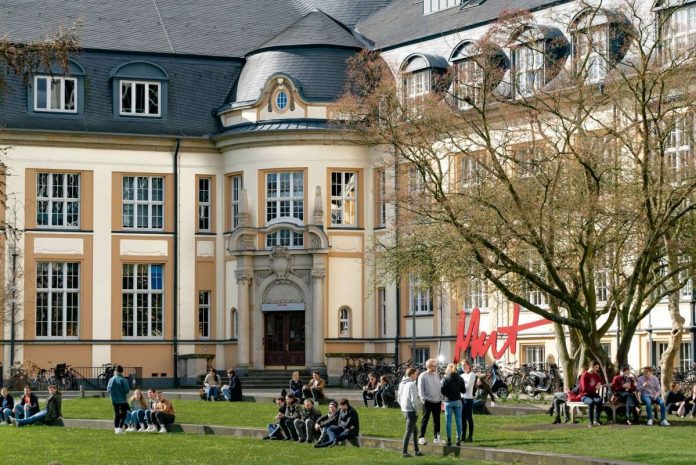Against a backdrop of teacher shortages and poor academic performance, more and more parents are choosing to send their children to private schools, as free German education is no longer something prestigious – DW reports.
Public schools and even universities are free in Germany, but an increasing number of parents are choosing to pay an average of €2,030 a year to send their child to a private school. In the 2022-2023 school year, the proportion of students attending private school has risen to almost 10% (from 6% two years ago).
This significant increase has raised concerns as well-educated parents are now opting out of the public school system and in turn, unwittingly contributing to social inequality as they want nothing to do with mediocre free education.
The priority of private schools lies in the fact that in Germany such schools can be run by churches, social welfare organisations, associations or private individuals. For instance, Louise reports that she chose to send her two children to a private Catholic school in Berlin because her children simply could not get the support they needed in the German capital’s public schools, where teachers were often called in sick and almost none of the children spoke German. She pays monthly fees of between €180 and €360 to send her children to a Catholic school.
There is a contrary opinion. Stephan Köppe, an expert in comparative social policy from University College Dublin, argues that there is no evidence that children in private schools in Germany learn better than those in public schools.
What is concerning is that it really points towards either discontent with the state school system or so far unexplained cultural changes, Köppe told DW.
The Munich Institute for Economic Research “Info” in its survey showed that Germans are increasingly dissatisfied with the quality of education in their country. The reasons are many: school buildings are literally falling apart and are often closed for repairs. Schools are slowly going digital: many of them cannot afford computers and don’t have reliable and fast Wi-Fi. In addition, there is also a shortage of teachers: they are often ill and increasingly leaving the profession due to overwork and poor working conditions. Teachers from the baby boomer generation are also retiring.
Moreover, the latest report from the Programme for International Student Assessment (PISA) also brought bitter news: ninth graders in Germany performed worse than ever in maths, science and reading, sparking much debate about what is wrong with the education system in the land of poets and thinkers.
Some blame immigration for the deplorable state of the German education system. Some 217,000 Ukrainian refugee children now attend schools in Germany, but immigration is not the problem, says Marcel Helbig, an expert on education and social inequality at Germany’s Leibniz Institute for Educational Trajectories.
The performance at [Gymnasien, or university preparation secondary schools] where there are hardly any migrant kids has also fallen very sharply. It is more than just a migrant-specific problem that we are dealing with here, he told DW.
In contrast, he argues that all the evidence shows that academic performance in Germany is still closely linked to socio-economic status rather than the school a child attends. Because the classism of parents and their children makes itself felt as soon as they enter another school.
The real problem is not the public schools, but the structure of the school system itself, which involves a “track system,” and in some Länder, as early as the fourth grade, when pupils are about 10 years old, a decision is made as to whether they can attend a gymnasium or not.
The right to establish a public school is guaranteed by the German constitution, which was supposed to protect religious pluralism due to Germany’s history, but not everyone agrees with having public schools. However, Germany is still far from the disparity in educational outcomes that exists between private and public schools in the US and UK.
